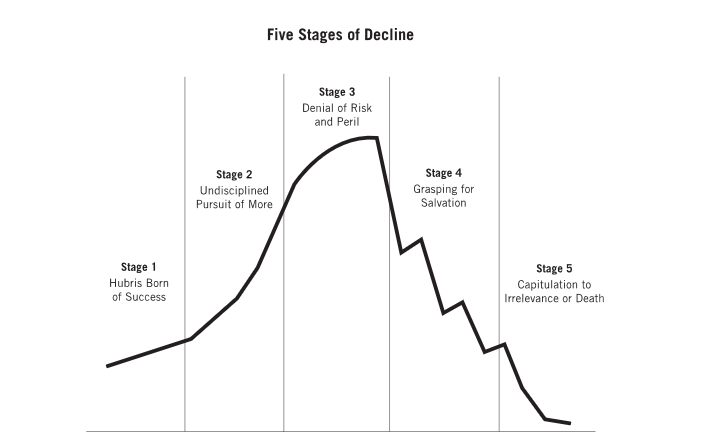Five books that will change you
Knowing more about what makes a good and bad business can give you confidence as to whether your career will flourish or whether it's time to move on, understand where the company is going and confidence of whether it will be successful over the long term.

As with most developers, I love to code and create applications that people go on to use for years and years. It requires continual learning which is fantastic as there's always something new to discover. It's not only useful to keep up to date with new technology but also to learn more about business and how it functions. Now, before you stop reading, I'm not going to advocate learning about Excel Pivot Tables or EBIDA because they're exceedingly boring!
Knowing more about what makes a good and bad business can give you confidence as to whether your career will flourish or whether it's time to move on, understand where the company is going and confidence of whether it will be successful over the long term. As a developer, it's easy to get tunnel vision where you focus on tech but you don't understand the reasoning behind what the company is doing all around you.
Having a membership to Audible I have listened to some amazing books but there are five that have really given me more insights into what really makes a company become great.
Strangely, despite their different approaches they are all ultimately about one thing. Culture. Culture can make or break a company. As the father of modern management Peter Druker [apparently] said;
culture eats strategy for breakfast
So here we are in no particular order, five awesome books that will change your life & career;
Hit Refresh by Satya Nadella
Microsoft was the greatest, then suddenly Apple caught up, Google caught up, a huge gamble on Windows phone didn't work and everything was beginning to go a bit wrong. New CEO Satya Natella came up through the ranks from humble beginnings. He led a complete transformation of the company to sweep away the toxicity that preceded him, adopt agile ways of working and even adopt opensource. Microsoft is now the most valuable company in the world. Wow.
UK Affiliate Link US Affiliate Link
Who Says Elephants Can't Dance: How I Turned Around IBM by Louis Gerstner
Very similar to Hit Refresh, where a once great company was doing badly (real bad in IBM's case). The reluctant boss Louis Gerstner found a company set in its ways with all kinds of crazy stuff going on, from the dress code and formality of meetings to how regional divisions competed with each other. He made huge decisions, laying of tens of thousands of staff and selling real estate. Once more it came down to a complete change in culture and direction.
UK Affiliate Link US Affiliate Link
The Silo Effect: The Peril of Expertise, and the Promise of Breaking Down Barriers by Gillian Tett
Every company has siloes to some extent, this has many case studies of how ridiculous and damaging they can become. One of the examples that comes to mind was Sony divisions competing with differing MP3 players completely missing Apple sneaking past them with the iPod and the rest is history.
UK Affiliate Link US Affiliate Link
The Culture Code: The Secrets of Highly Successful Groups by Daniel Coyle
Culture, culture, culture. I think that's the most overused word in this blog (except perhaps 'the' or 'has') but it's important. The view of your company starts before you hire. How do your job adverts look, how do you act during an interview, is it all about what you can get rather than what you can give? What happens on employee day #1? It's all in The Culture Code. Once you've read this, you'll be looking at how you do things. The little details that the company does can be the difference between engaged :-) or disengaged :-( employees.
UK Affiliate Link US Affiliate Link
How the Mighty Fall by Jim Collins
Earlier, I said this list was in no particular order. I lied. This is the best, which I have returned to multiple times. It's just brilliant. Not too long and full of evidence backed case studies of how once great companies started to rot and then either went bust or something radical happened to propel them in a different direction (err, IBM for example). Jim Collins introduces his five stages of decline. Evaluate your company to see where it is on the scale.

